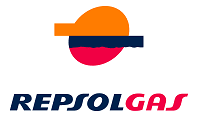Along with soaring temperatures and mosquitoes, summer brings a very unwelcome visitor to the Costa Blanca – the bogus gas inspector. Like all the best scams, this one evolves from a grain of truth. In Spain, there is very little mains gas. If you have gas for your hot water, it is probably bottled gas, and the pipes and regulators must by law be inspected every 5 years.
The scam works like this: someone wearing an orange sweatshirt and carrying a blue clipboard will turn up unannounced to carry out a ‘compulsory gas inspection.’ He may flash an ID at you, and may even try to force entry to your property. After a brief inspection, your gas installation will be condemned, and you’ll be a few hundred Euro out of pocket. One unlucky pensioner was charged 425 Euro to replace an out of date pipe, yet all the ‘inspector’ did was dust the pipe, which was indeed in need of renewal.
Any reputable company will make an appointment to carry out an inspection, and their ID should be offered for thorough examination. The two companies who deal in gas in Spain, Repsol and Cepsa, may contract out the inspections to authorised companies. Your local Ayuntamento should be able to tell you who is authorised to carry out gas inspections in your area. Make a note of the name of the company and contact details, so you can check that your gas inspector is legal.
As the local press has been warning residents about the scam - which has been operating in one incarnation or another for years - the conmen have now added an extra nuance to make themselves more plausible. You may receive a phone call from someone purporting to be calling to make an appointment for inspection.
Appointments usually arrive through the post, but if the gas company does call for any reason, the caller will identify themself. The bogus gas men are unwilling to do so, and probably have very little English, so they will repeat a phrase like 'you must make appointment now,' and get more and more agitated and angry if you refuse.
Genuine employees are usually very polite, and will supply you with all the information you need, so this is the cue to put the phone down and call the gas company to check it out. Don't assume that just because someone has called your house, it's a genuine call from the gas company.
If you have any doubts at all, refuse entry. If your unwelcome caller refuses to leave, threaten to call the Police. This will usually do the trick. Sometimes these conmen operate in pairs, and one of them will be looking for things to steal while the other one carries out the ‘inspection,’ thus perpetrating two scams in one. If they do manage to talk their way in, don’t allow them unsupervised access to your home.
The only way to be really safe from conmen is to make it a rule never to allow any casual callers into your home. Legitimate tradesmen will not mind if you check with their office, and most Spanish companies operate an appointments system anyway, so you should always receive notice of any inspection visits.
Another gas related scam is operated by genuine but unscrupulous employees of Repsol or Cepsa. You could be asked for a sum - typically 30 Euro - for connecting your gas supply or for a non-existent insurance premium. While there may be a charge for connection, it will appear on your gas bill. Furthermore, the gas companies do not make a habit of offering insurance, as this should be included in your household policy.
These villains capitalise on your supposed ignorance of how things operate in Spain, so be aware of the scams and don’t let anyone separate you from your hard-earned Euros.
